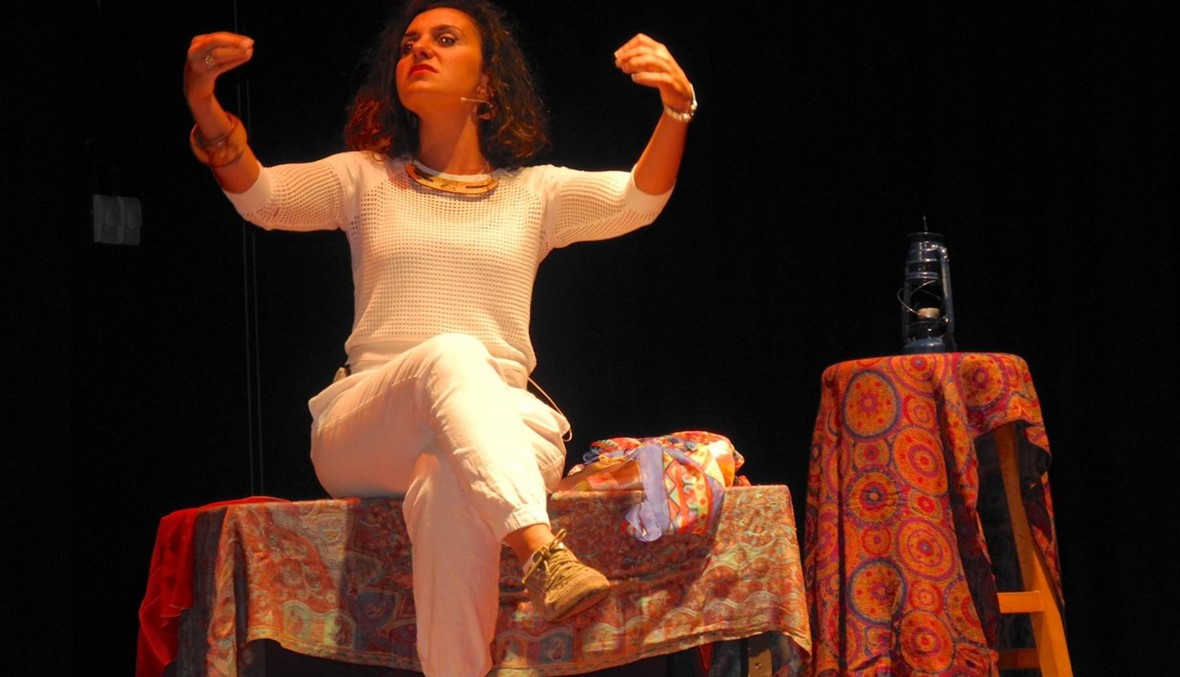

BEIRUT: Amidst the hectic and chaotic scene of modern Beirut, those Lebanese up for a good tale are bringing back the old Arab custom of storytelling.
And this custom – at one time the most popular form of entertainment in the Middle East used to be that of the storyteller, or “hakawati”.
The word “hakawati” is a derivative of the Lebanese word “hekaya,” meaning story. A hakawati is a teller of tales, legends and fables; a storyteller, a performer, and someone who earns his living by fascinating and captivating an audience with his tales.
In the old days, each village had its own hakawati, but the truly great ones left their homes and traveled around the country recounting their tales to earn their living.
The storyteller tells traditional tales such as 1001 Nights, chronicles of legendary Arab heroes, or stories from Holy Scriptures.
By playing around with accent, tone, and pitch, the storyteller mimics many characters in his stories.
A storyteller could go on twisting the same tale daily over numerous months, always ending on a cliffhanger to keep his audience aching for more, the counterpart of today’s series.
According to a legend from the eighteenth century, Ahmad al Saidawi, one of the top hakawati’s of his era, told the story of King Baybars for three hundred and seventy-two evenings in a coffee shop in Aleppo, Syria. This may have been a record.
It is also said that al Saidawi cut ended the story because the Ottoman ruler urged him to do so.
However, as the world shifted toward technology and more modern means of entertainment, the hakawati was pushed off to the sidelines by more forceful forms of captivating people's interest.
The hakawati began to find themselves continuously on the edge; and the tales of nobility and generosity, though just as mesmerizing as ever, were not finding an audience as they once did.
But all is not lost yet. This wealthy and beautiful thread of culture in the fabric of the region, though a bit worn, is now luckily being strengthened once again.
Ever since the Lebanese-American painter-writer, Rabih Alameddine wrote his book The Hakawati that gained critical approval around the globe, this prosperous Arabic tradition of storytelling has drawn great interest internationally.
Dima Matta, a university lecturer, writer, and performer, reset the trend of storytelling gatherings in Beirut in 2014 with her cliffhangers storytelling events. Matta, who listened to her father’s tales of the Lebanese Civil War and his adolescence in his family’s village during many of Beirut’s recurrent power cuts, said she sees the new storytelling events as a prolongation of the Middle Eastern hakawati folklore, but also as a way of documenting personal histories that would otherwise go unsaid.
According to Lebanon Traveler Magazine, storytelling is gradually becoming a widespread evening activity in Beirut.
Another storytelling initiative, “Hakaya Stortelling,” kick started when a group of people noticed how much of Lebanon’s history was being left unsaid.
Hakaya storytellers include people from all walks of life, ages, and backgrounds; from Syrian refugees to expatriates; sitting together sharing struggles of love, hate, and heartbreak depending on the theme of the night.
For many people, these events can provide a healing atmosphere where strangers can share personal experiences without the fear of being judged.
Some people fret over the safe space losing familiarity in the fizz of chaos that is Beirut, but participants remain enthusiastic to listen to and share others people’s experiences.
Alia Alzoughbi has been a storyteller for fifteen years. Alzougbi works at the British Museum as an oral historian, telling tales of Arabic and Muslim culture. “In the United Kingdom there is a lot of misrepresentation about Arabs and Muslims; storytelling is a method of breaking stereotypes.”
Al Zoughbi expressed her concerns over the future of storytelling in Lebanon.
“It’s a big struggle to be a storyteller in Lebanon, because we are so attached to the digital; for us to sit back and just listen to a story is a challenge.”
Dr. Seba Ali, Music Adjunct Professor at the Lebanese American University told Annahar “in our highly visual world we need to go back to the bare bones of art which is all based on storytelling; theater, art, and dance are all based on storytelling.”